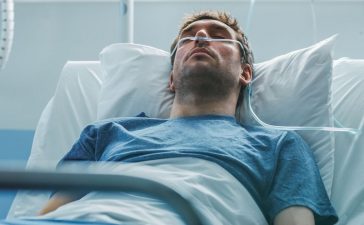An unregulated rehab centre linked to the Church of Scientology put mentally ill people through intense psychological drills that allegedly left them “traumatised” and in “trance-like” states, an investigation by the Observer can reveal.
Former patients and staff at Narconon UK say vulnerable people seeking help for addiction were expected to complete mental exercises, similar to methods used in Scientology’s controversial “auditing” process, at a secluded compound in rural Sussex.
Before arriving, they had thought Narconon was offering a holistic approach to rehabilitation and were drawn in by promises it could help them get “drug free for good”.
In a call with an undercover reporter, a Narconon salesperson also claimed the programme was “not related” to Scientology. But over a three-month period, participants were allegedly subjected to methods near identical to those used by the religious movement.
In some cases they took part in the repetitive “drills” for so long, while in vulnerable states due to their mental health or past substance use, that they would zone out, become paranoid or break down, according to corroborating testimony from people familiar with the programme. Participants were also allegedly left feeling suicidal and as though their minds had been “shattered” by the exercises – which often involved following commands such as “stand up, sit down”, or pointing at different objects. The drills could last up to five hours a day, for several weeks.
Narconon said the drills, based on writings by L Ron Hubbard, Scientology’s founder, were “mentally strenuous” and required discipline but had helped save lives. It said they were not a religious doctrine but had a “positive secular application”.
Experts and witnesses likened the methods to a form of obedience training. People working at the facility were also expected to complete the programme.
The allegations raise questions over how a rehab with links to one of the world’s most controversial religious movements, accused of abusive practices, is able to operate unregulated in Britain.
Marketed as “world class”, and listed in an NHS directory, Narconon’s Sussex facility, on a nine-acre campus near the town of Heathfield, opened in 2015. But it has not been inspected since 2016, and has never been assessed to ensure its programme is effective or safe. Instead, it has been operating without oversight for the last five years due to a regulation loophole, the Observer’s investigation has found, and remains free of the same scrutiny that other addiction programmes face.
While the Care Quality Commission (CQC) oversees substance misuse services, it says Narconon’s programme is not within its remit and suggested this was because its approach was “alternative”.
It said the service was not known to be providing any regulated activities and had been considered dormant since 2019.
Records released under freedom of information laws show that in that time, the watchdog has received 14 complaints which it did not formally investigate, saying it had no duty to do so. Despite this, Narconon continues to display a “good” CQC rating on its website, from a prior inspection which assessed its accommodation, management and provision of personal care – but not the programme itself.
Dr David Bremner, medical director at addiction charity Turning Point, said the loophole showed the need for better regulation. The Department of Health declined to comment.
after newsletter promotion
The Observer’s investigation also suggests Narconon is more closely linked to Scientology than it lets on. Its operations are supported by the Narconon Trust, which is principally funded by the International Association of Scientologists. Senior staff are members of the church.
In Scientology’s “auditing” process, Scientologists complete exercises they believe will help them become spiritually enlightened. To learn the skills Scientology says are needed for auditing, followers take part in a series of drills known as “training routines”. These include following repetitive commands, sitting perfectly still or undergoing persistent questioning – closely resembling drills used at Narconon.
Prof Sally Marlow from the Institute of Psychiatry, Psychology and Neuroscience at King’s College London, said the approach did not sound therapeutic. “It is extremely concerning,” she said.
Narconon UK, the charity behind the facility, said its “students” were assessed by a GP before the programme, which also includes long sauna sessions, high doses of vitamins and costs about £15,000. It said it was not a medical treatment and did not have patients, so did not need to be registered with the CQC as a substance misuse service. Sheila Maclean, Narconon UK’s manager, said it was “deeply regrettable” that some people did “not get on” with its methods but insisted they were safe. “Even the best-run services have their critics,” she said.










